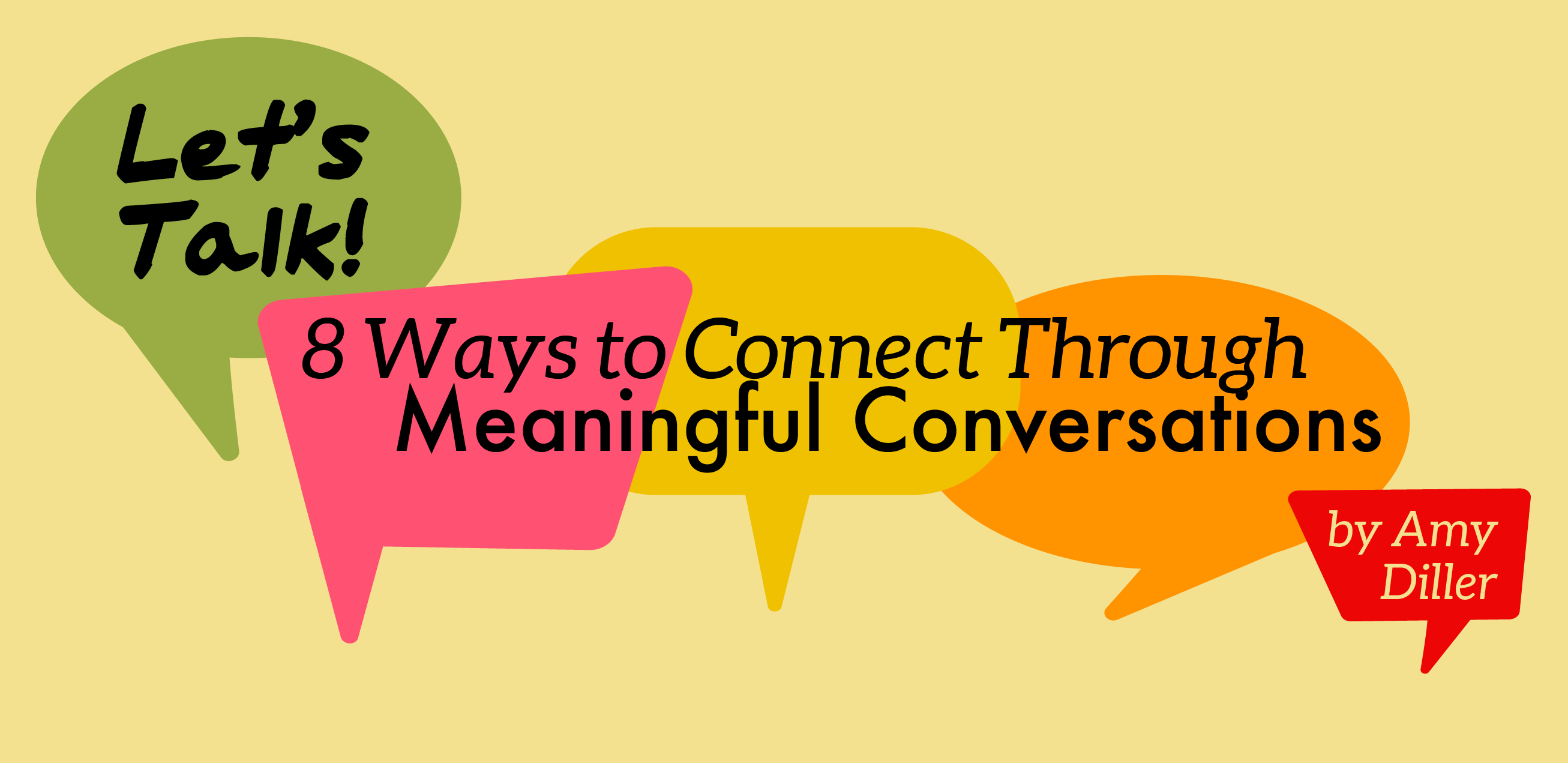Let’s Talk! 8 Ways to Connect Through Meaningful Conversations
by Amy Diller
Most of the relationships that have made the biggest impact in my life began in church. Those I consider mentors include one of my earliest teachers at a Bible study my parents attended, a couple who led children’s church during my elementary years, and my youth group leaders. They made me feel loved, important, and heard. Some of my closest and oldest peer relationships, including my husband, were nurtured in church. When we think about making a lasting impact in the lives of the children we serve, one of the ways we can do this is through meaningful connections and conversations.
The following ideas and principles are not only for you personally as a leader but also to share with volunteers and to teach kids about as you all grow in relationship with one another.
- Stop what you’re doing. When a child wants to talk to you, press pause on what you’re doing and give him or her your full attention whenever possible. Some important times for Free play and small group times are great opportunities for these conversations. Moments during lessons when kids answer questions or offer their insight.
- Get down on their level. When we have conversations as adults, we’re at approximately the same level and can easily maintain eye contact. As a child, it can be intimidating to have an adult towering over you. When you get down face to face with a child, it shows you value and respect what he or she has to say through shared, two-way conversation. It also helps build trust and openness in a child’s relationship with you, providing a feeling of safety and security.
- Practice active listening. Focus on what the child is saying, make eye contact, and pay attention to facial expressions and gestures. Little cues from you, like nodding and little listening verbalizations, show him or her that you place importance on what they have to say. It’s easy, especially as leaders, to have a lot of things running through our minds all at once. Slow down. Sometimes, these are the very moments God has ordained for you to make an eternal impact in the life of a child.
- Validate their feelings. Children experience strong emotions, oftentimes reacting with more intensity than adults in similar circumstances. When a child expresses his or her emotions, give them an empathetic ear. Acknowledge their feelings, restate their emotions (ex – “You felt angry when you didn’t get to ____.”), and stay in the moment rather than jumping in immediately to “fix” the situation. Sometimes, kids simply need to talk through their feelings and be heard. Other times, a solution can be figured out together once the child’s emotions have calmed.
- If it’s important to them, it needs to be important to you. Whether what a child wants to tell you about is something they’re interested in, a problem they’re having, or questions and wonderings, use these moments as a connection point. When others listen and take an interest, kids feel cared for. When kids learn to trust caring people to listen to what’s important to them when they’re young, they are more likely to seek out those same people as they get older. It’s in these early years that strong friendships and mentoring relationships begin.
- Invite them to talk. Nurture meaningful conversations with children through open-ended questions – those that require more than a one- or two-word answer. Try things like “What was the best/worst part of your day?” or “How did you show kindness to someone at school this week?” Dig deeper by saying, “Tell me more about that,” and “Why do you think that happened?” Many of these questions can be applied to the lessons you teach. Inviting kids to share their spiritual insights and personal connections to God’s Word helps to establish their place as a full participants in the Body of Christ.
7. Manage group expectations. Many kids like to talk…and talk, and talk, and talk! These are the blurters, the random storytellers, and the ones who would answer every single question if you let them. Establish and teach rules for conversation. Good communicators know how to take turns when talking. They don’t talk over one another, and they don’t interrupt. Not every child will feel comfortable talking in front of the group, but they may want to write something down for you to share with them or want to speak in a small group. Make sure you give opportunities for everyone to participate.
8. Have fun! There are certainly times for serious conversations and to learn with and from one another, but there should always be room for fun. Share jokes and silly stories. Pull out some random Would You Rather? questions or conversation starters. Laughter draws a group together just as much as deep, meaningful talks do.
Now that I’ve shared some of my thoughts with you, I’d love for you to share your ideas, insights, and stories with others. Ministry to Parents has created a private Facebook group for conversations just like these.
Join us at www.facebook.com/groups/m2pcommunity.

